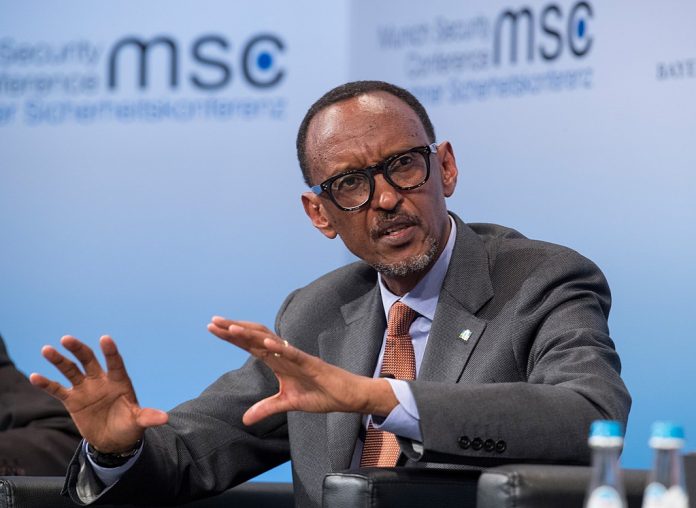A new survey shows that Africa’s youth population is divided when it comes to the question of democracy versus stability. This makes sense. The question is a complex one, with no clear best answer, and each country included in the survey has its own unique history, which affects how its people evaluate the question.
The inaugural African Youth Survey (AYS), commissioned by the Ichikowitz Family Foundation (IFF), found that 48 percent of young people in fourteen sub-Saharan African countries favor democracy over stability, while that same number favored stability.
The fact that the survey found no clear consensus in favor of democracy will surely be taken as an alarming sign by many proponents of democracy. It shouldn’t be.
With the third-wave of democratization, democracy spread across Africa in the 1990s. Apartheid ended in South Africa in 1994. The number of democracies increased to nearly a quarter in the early 2000s, while the number of “not free” countries declined to its lowest level in 2001, according to Freedom House.
Democracy has had a partial retreat in Africa since then, just as it is experiencing a retreat in much of the rest of the world. The number of full democracies has dropped from ten in 2012 to seven in 2019, “the lowest figure since 1991,” according to a Freedom House publication. But the number of not free countries has also declined in that time. One reason for the changes: the number of partly free countries has increased.
And while about half of young Africans prioritize stability over democracy, Africans do have strong support for democratic values when it comes to particular questions. Eight-five percent support freedom of belief, 70 percent plan to vote in upcoming elections, and large majorities support doing more to address inequality and access to internet and infrastructure.
When it comes to preferring stability, it actually makes sense that people who support prosperity and individual liberties would support stability to democracy, generically defined, when forms of democracy in infancy often lead to illiberal populism that violates civil liberties.
Support for stability is the highest in countries that have recently undergone chaotic political unrest or are currently experiencing it. Mali, which has experienced factional fighting and disputed elections in recent years, the very conditions that led to the August coup, topped the list, with 77 percent of Mali youth supporting stability. Mali was followed by Ethiopia, Rwanda, and South Africa.
Ethiopia has been rocked by ethnic violence and a government crackdown since June, which has killed over 239 civilians and police officers, while Prime Minister Abiy has delayed the August elections. In South Africa, the African National Congress has battled one corruption scandal after another while struggling to address inequality, land reform, and persistently high and rising unemployment rate.
It should be no surprise that people will look towards other solutions when ineffectual paper democracy fails.
The one country in the top four that is doing well is Rwanda. Since the genocide, Rwanda’s economy, life expectancy, and human development index has increased rapidly. GDP grew by between 6 percent and 10 percent every year from 2014 to 2019. The literacy rate has risen by 64 percent in 2000 to 73 percent in 2018. Streets are clean, and police are honest. Rwanda has been described as “Africa’s Singapore,” which is what President Paul Kagame is aiming for.
Like Singapore, it is not a 100 percent competitive democracy. Since becoming president in 2000, Kagame has won three elections with over 90 percent of the vote. His administration has put restrictions on the free press and opposition to the government. But it has been relatively effective at moving forward on its agenda, serving the interests of the people.
Ultimately, the stable government of Rwanda, pursuing a liberal reform agenda, is doing a better job of meeting its people’s basic needs of survival and well-being. On the other hand, some of the countries with more competitive elections are not satisfying people’s needs. For a Rwandan citizen with a civic memory of the horrible brutalities of the time when the country was not stable and personal experience of the current developmental advantages, it would make sense to prefer stability.
“Democracy” properly understood has a broader definition than just rule-by-the-majority. It also includes economic democracy, access to education, the courts, and equal opportunity. In some ways, emphasizing development, which increases the public’s access to education and the ability to enhance one’s social standing, is the best way to expand the scope of democracy of a country in its early stages.
Many African youths seem to understand this. Western governments and NGOs should offer their support where needed, but they should not question the underlying aspirations and strategies of the next generation of Africans.
Mitchell Blatt is a columnist and freelance writer based in Seoul who covers politics and travel. He has been published at Washington Examiner.com, Daily Caller.com, The Hill.com, and Newsbusters, among other outlets.


